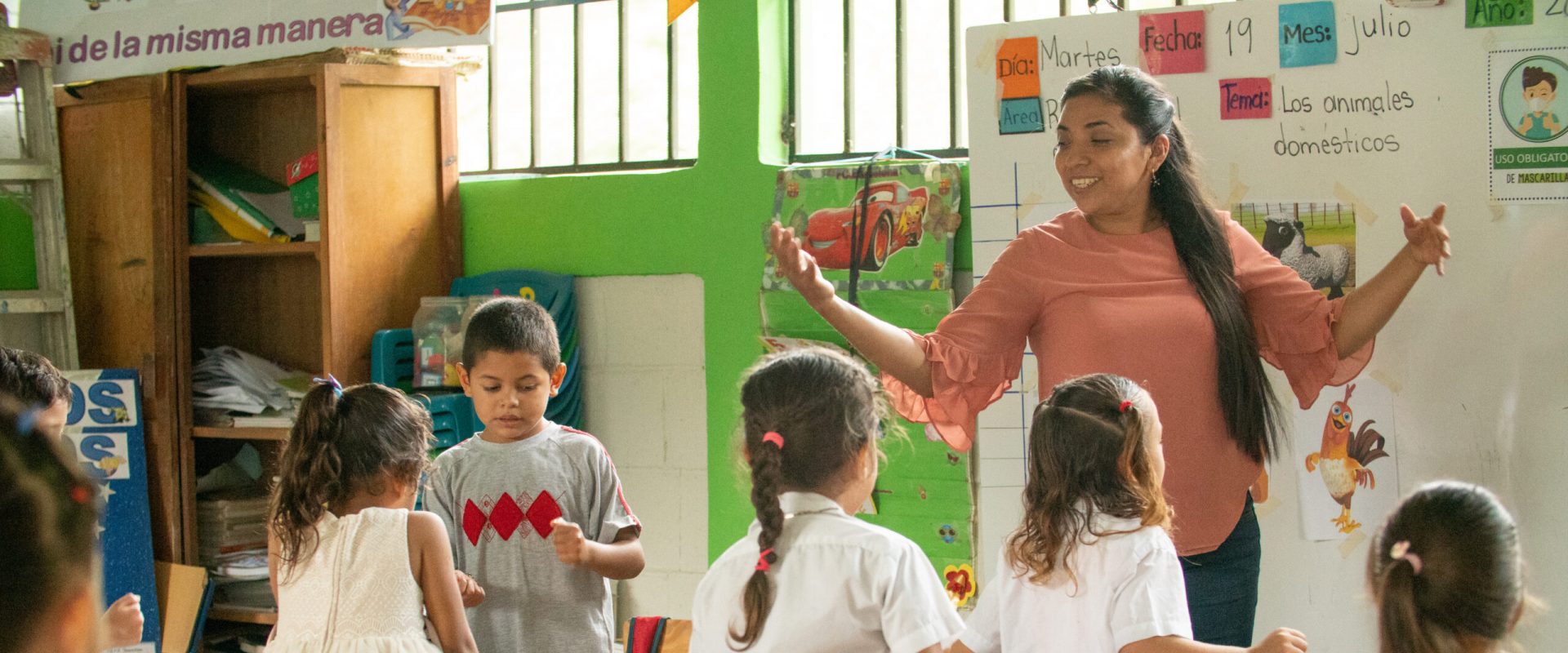
At School the World, we believe every child deserves the chance to master the basics—reading, writing, and math—that unlock the door to lifelong learning. But across Central America, too many children reach primary school without these foundational skills, leaving them at risk of falling behind or dropping out altogether.
That’s why in 2021, we launched our Accelerated Learning Recovery Program, grounded in the globally recognized Teaching at the Right Level (TaRL) methodology. Originally developed by Pratham in India, TaRL is now being adapted in countries across Africa and Asia—and with School the World’s leadership, it’s taking root in Central America.
Our tutoring model is simple yet powerful:
Tutors are not full-time staff but locally recruited university students or graduates in education, trained and coached throughout the year. Working alongside teachers, they pull students from class for focused small-group sessions in literacy and numeracy. Importantly, teachers are also trained in this methodology and often observe tutors working with their students. This allows them to see firsthand how grouping by level drives learning progress, reinforcing data-informed instruction and encouraging wider classroom adoption.
The program supports students in Grades 2–4, grouping them by ability rather than grade, and follows them for 2–3 years of intervention. By focusing on these years, we help ensure that children—whatever their starting level—are ready to thrive when they reach the critical 6th grade transition, a point when many students risk disengaging or dropping out.
“When school began this year, I had forgotten everything! … The tutor helped me a lot with letters, numbers, reading and writing. Before it was SO difficult. Now, I can count to 300!! … Now I am so happy. I always want the weekends to go by quickly so that I can learn more on Monday.”
— Sandra, age 10, Guatemala
Since its launch, the tutoring program has reached over 11,000 children across Guatemala, Honduras, and Panama.
Independent evaluations and our own monitoring show statistically significant gains in both reading fluency and math problem-solving. In fact, HundrED.org, a leading global education think tank, has recognized our tutoring program two years in a row (2023 & 2024) as “one of the most innovative, impactful and scalable education interventions in the world”.
We’re also closely following Pratham’s pilot projects in Central America, ensuring that our adaptation continues to align with global best practice while remaining rooted in the local cultural and linguistic context.
The program’s success has sparked new opportunities for collaboration. We recently shared our approach with Youth Impact, an organization that has adapted TaRL in countries across Africa and Asia, including the Philippines—where School the World will be launching later this year.
Through this partnership, we will also explore A/B testing to refine our model and answer key questions about how best to scale tutoring in the Central American context.
Education recovery is not just about making up for pandemic learning loss—it’s about ensuring that children can read, write, and calculate with confidence so they can stay in school and thrive.
At School the World, we are committed to expanding this evidence-based tutoring program and sharing our learnings with partners who share our vision. With continued adaptation, collaboration, and investment, we believe TaRL can help transform education in Central America—and beyond.